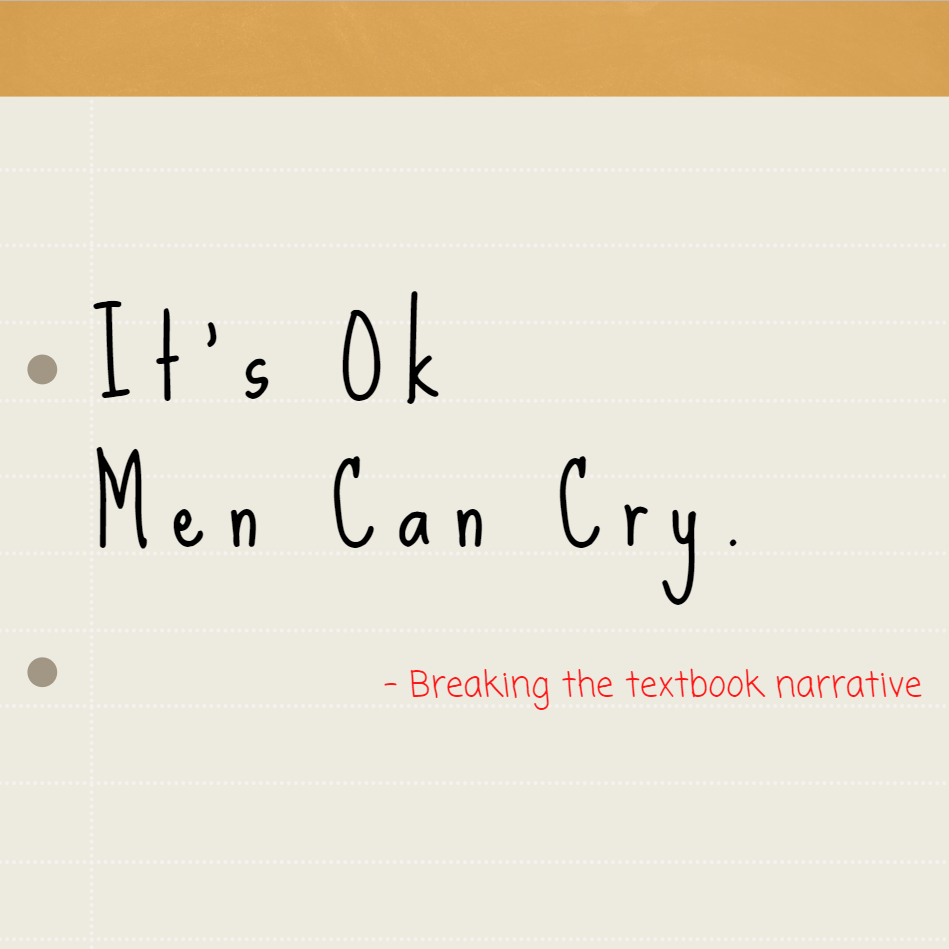It is thought that one in eight men have a common mental health problem, yet research shows that men often struggle to discuss or seek help for psychological issues. This is because men are usually traditionally stereotyped as someone who is socially dominant. We always heard people saying “toughen up you are a guy!” or “don’t whine you are not a little girl” as people believed that this characteristic is inherited by women. (Before the recent pandemic) Globally, death by suicide occurred about 1.8 times more often among males than among females in 2008, and 1.7 times in 2015. In the western world, males die by suicide three to four times more often than do females.
You may wonder why this happens to men? And why is it difficult for men to come out and seek professional help? Other than being asked to man up by society, the idea of needing someone else and looking weak doesn’t sit right with men, who unfortunately have come to normalize this traditional way of looking at men.
Based on my research as conducted through an anonymous survey vary from 5-18 years old, I gathered responses such as “I will be labelled as a disappointment to my family”, “when you start to open up you will look weak, and I don’t want to look vulnerable in front of other people” and “my parents always taught me that men shouldn’t cry over their problem, and should toughen up” or “my other guy friend wouldn’t want to befriend with a cry baby” these types of comments towards men build a toxic and negative mindset on them and it stops them from opening up. Moreover, men are less likely to admit feelings of loneliness. The Samaritans found that teaching boys to be ‘manly’ during childhood reduces social and emotional skills, the same skills required to express troubling feelings. Tnncharity on Instagram talked about how traditional masculinity hurts men. It is said that life expectancy in men has been consistently lower than in women for most of the last century. Furthermore, to be perceived as masculine in the traditional sense and adapting certain traits (aggression, unemotional, risk-taking, in control) giving ‘real man’ status also results in vulnerability to negative physical and mental health.
We can help make a better environment for men by telling them that it is okay to open up, to ask for help, and to show their emotions. Going to therapy as well as seeking help for mental health is okay, and we should encourage them to talk about it rather than bottling up their emotions.
If you are one of the men who are now trying to get better and is seeking professional help, this is a sign for you to keep going, we are very proud of you and showing emotions is not a feminine thing. Everyone has it and we should all take care of our mental health.
Tnncharity offers a completely free peer support meeting called Boys Talk where men can talk about their mental health and wellbeing. Some other great resources can be found at @letsgetmentalking, @menofmanual, @strongmenorguk, and @thebookofman.
